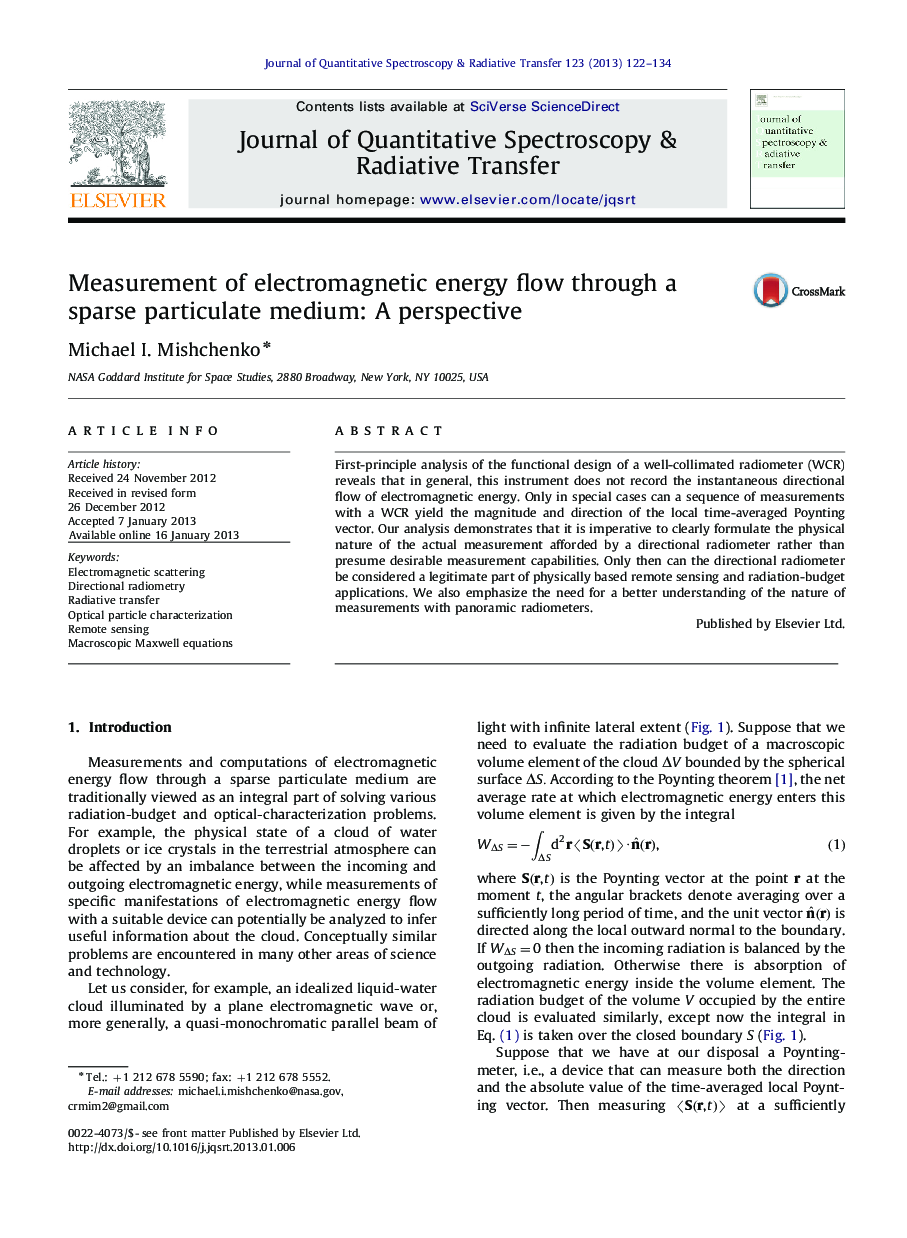| Article ID | Journal | Published Year | Pages | File Type |
|---|---|---|---|---|
| 5428831 | Journal of Quantitative Spectroscopy and Radiative Transfer | 2013 | 13 Pages |
First-principle analysis of the functional design of a well-collimated radiometer (WCR) reveals that in general, this instrument does not record the instantaneous directional flow of electromagnetic energy. Only in special cases can a sequence of measurements with a WCR yield the magnitude and direction of the local time-averaged Poynting vector. Our analysis demonstrates that it is imperative to clearly formulate the physical nature of the actual measurement afforded by a directional radiometer rather than presume desirable measurement capabilities. Only then can the directional radiometer be considered a legitimate part of physically based remote sensing and radiation-budget applications. We also emphasize the need for a better understanding of the nature of measurements with panoramic radiometers.
⺠Functional design of well-collimated radiometers is analyzed based on first principles. ⺠It is shown that WCRs do not record the instantaneous directional flow of electromagnetic energy. ⺠Only in special cases can a WCR yield the local time-averaged Poynting vector. ⺠Need for better understanding of measurements with panoramic radiometers is emphasized.
